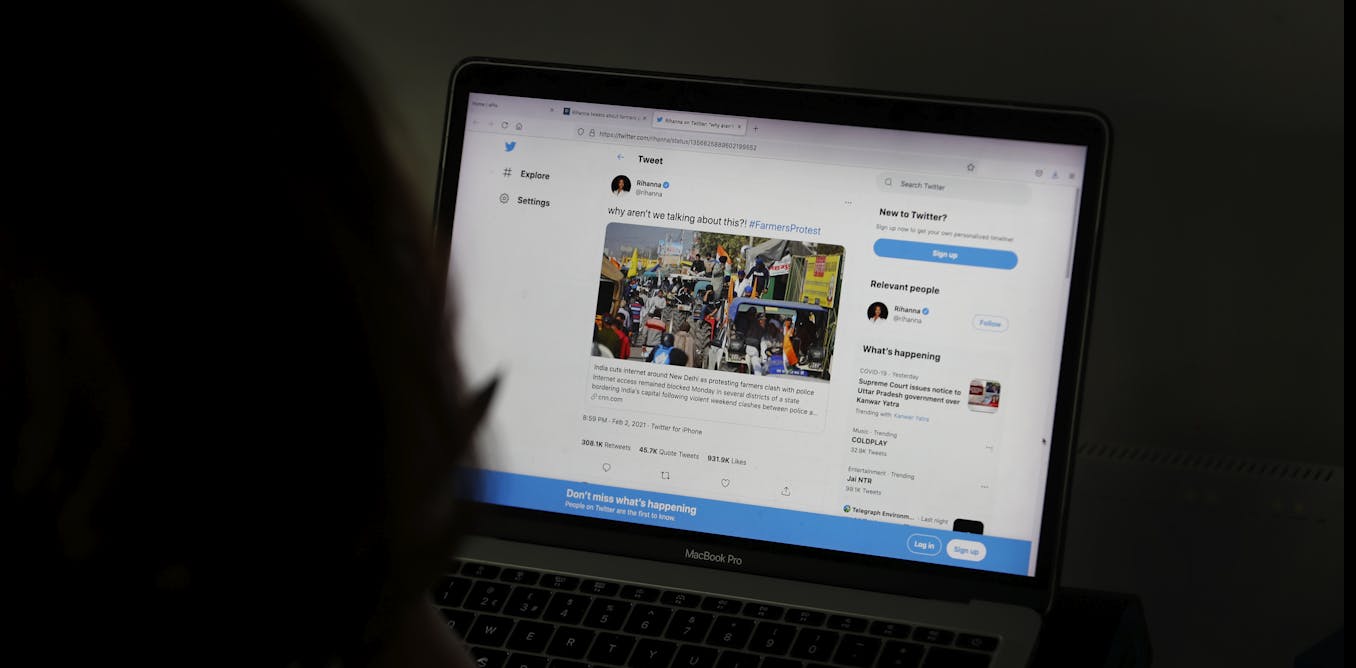The Impact of Social Media Algorithms on Learning and Misinformation
Conceitos essenciais
Algorithms on social media platforms amplify biased information, leading to social misperceptions, conflict, and the spread of misinformation.
Resumo
People's interactions with online algorithms influence how they learn from others, causing negative outcomes like social misperceptions and misinformation. Algorithms control the flow of information on social media platforms, amplifying content that sustains engagement. This amplification can lead to a skewed perception of reality and increased polarization in society. Research is ongoing to understand the impact of algorithm-mediated social learning better and develop strategies to foster accurate human social learning.
Social media algorithms warp how people learn from each other, research shows
Estatísticas
People’s daily interactions with online algorithms affect how they learn from others.
Algorithms determine which messages, people, and ideas users see.
Algorithms amplify PRIME information: prestigious, in-group, moral, and emotional content.
Amplified PRIME information can lead to false perceptions and the spread of misinformation.
Studies show that social media algorithms clearly amplify PRIME information.
Citações
"People are increasingly interacting with others in social media environments where algorithms control the flow of social information they see."
"Algorithms amplify information that sustains engagement, keeping people clicking on content."
"The interaction of human psychology and algorithm amplification leads to dysfunction because social learning supports cooperation."
Principais Insights Extraídos De
by William Brad... às theconversation.com 08-21-2023
http://theconversation.com/social-media-algorithms-warp-how-people-learn-from-each-other-research-shows-211172
Perguntas Mais Profundas
How can we ensure that algorithms promote accurate human social learning without bias?
To ensure that algorithms promote accurate human social learning without bias, several strategies can be implemented. Firstly, transparency in algorithm design is crucial. Social media companies should disclose how their algorithms work and what factors influence the content shown to users. This transparency allows for scrutiny and accountability, reducing the potential for biased amplification of information.
Secondly, incorporating diverse perspectives in algorithm development is essential. By including individuals from various backgrounds and disciplines in the creation and evaluation of algorithms, a more comprehensive understanding of potential biases can be achieved. This diversity helps mitigate blind spots that may lead to inaccurate social learning outcomes.
Furthermore, regular audits and evaluations of algorithm performance are necessary. Continuous monitoring ensures that any unintended consequences or biases are identified promptly and addressed effectively. By regularly assessing algorithm behavior against predefined metrics related to accuracy and fairness, adjustments can be made to optimize social learning outcomes.
Lastly, promoting user agency and control over their online experience is key. Providing users with options to customize their content preferences, adjust settings related to information filtering, or opt-out of certain algorithmic features empowers individuals to curate their digital environment according to their values and interests.
How can individuals protect themselves from misinformation amplified by algorithms?
Individuals can take proactive steps to protect themselves from misinformation amplified by algorithms on social media platforms:
Diversify Information Sources: Relying on multiple sources for news and information reduces the risk of being exposed solely to biased or misleading content promoted by algorithms.
Fact-Checking: Before sharing or believing information encountered online, fact-checking through reputable sources helps verify its accuracy.
Critical Thinking Skills: Developing critical thinking skills enables individuals to evaluate information critically rather than accepting it at face value.
Limit Exposure: Being mindful of time spent on social media platforms reduces exposure to potentially harmful misinformation.
Report Misinformation: Reporting false or misleading content helps platforms identify problematic material for review.
By implementing these strategies consistently, individuals can navigate the digital landscape more effectively while minimizing the impact of misinformation amplified by algorithms.
What ethical considerations should be taken into account when giving academic researchers access data held by social media companies?
When granting academic researchers access data held by social media companies ethical considerations must be prioritized:
Informed Consent: Ensuring that users' consent is obtained before using their data for research purposes upholds principles of autonomy and respect for privacy rights.
Data Anonymization: Protecting user identities through anonymization techniques safeguards individual privacy while allowing researchers access valuable insights.
Data Security: Implementing robust security measures prevents unauthorized access or breaches that could compromise sensitive user information stored by social media companies.
Beneficence: Researchers must demonstrate how accessing this data will contribute positively towards knowledge advancement without causing harm or exploitation
6Transparency: Maintaining transparency about research objectives methodologies findings fosters trust between stakeholders involved in utilizing this data
Adhering strictly these ethical guidelines promotes responsible use research involving personal data collected maintained by organizations like those operating within realm socialedia platforms
0
